
This logo isn't an ad or affiliate link. It's an organization that shares in our mission, and empowered the authors to share their insights in Byte form.
Rumie vets Bytes for compliance with our
Standards.
The organization is responsible for the completeness and reliability of the content.
Learn more
about how Rumie works with partners.
Do you enjoy working with the soil or exploring the fascinating world of plants around you?
Have you ever wished to have a job that keeps you close to nature?
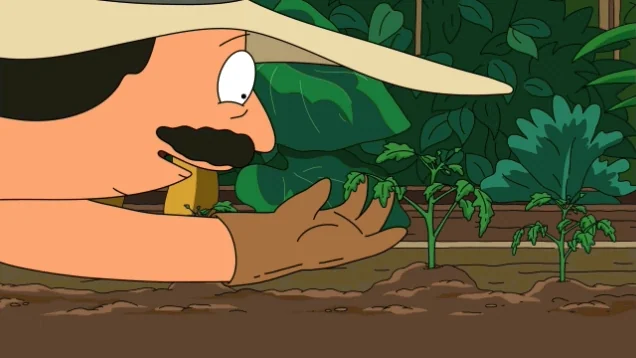
If yes, then you may be a good fit as a gardener or a horticulturist.
But what's the differencebetween the two?

Differences Between a Horticulturist and a Gardener
Although some tasks are similar, it’s important to know the key differences between a horticulturist and a gardener.
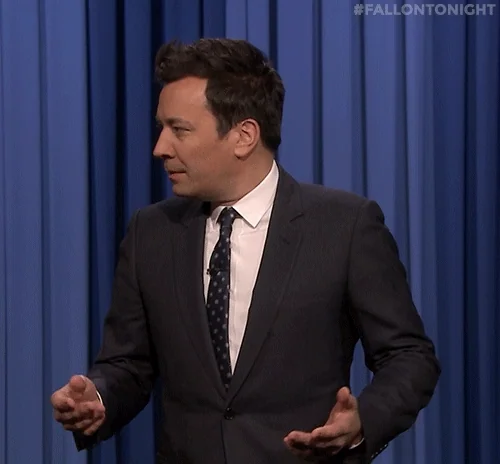
Horticulturist
Specializes in the science and art of cultivating plants and often works in labs
Focuses on research to improve plant species and develop sustainable agricultural practices

Example: Susan is a horticulturist who develops a new variety of rose and ensures it survives in extreme climates.
Gardener
Takes care of different types of plants to ensure their good health and prevent them from withering out
Performs hands-on tasks such as planting seeds, pruning, watering, and maintaining the plants
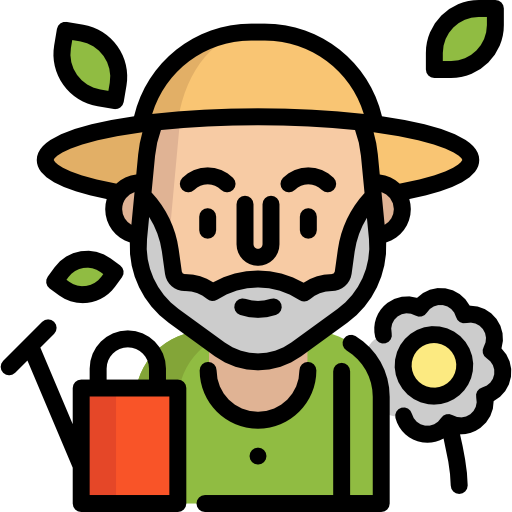
Example: Patrick is a gardener who creates a beautiful flower bed and ensures every bloom stays healthy.
Responsibilities of a Gardener
Gardeners keep gardens and landscapes looking nice. They monitor plants' health and ensure there is an adequate supply of water and nutrients.
A gardener can also help design outdoor spaces using plants, flowers, trees, and shrubs.
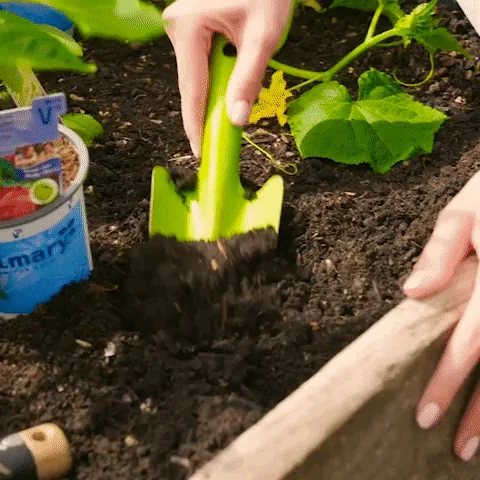
Responsibilities include:
Mowing the grass 🚜
Trimming grass, trees, and bushes 🔪
Watering plants 🚰
Arranging flowers 🌸
Caring for gardening tools 🛠️
Distributing fertilizer and applying pest management products 🐛
Eliminating weeds from flower beds 🌾
Monitoring the health and growth of plants 🔍
Education & Skills Required to Become a Gardener
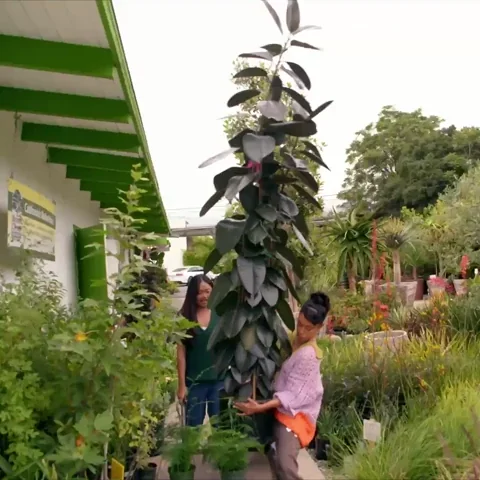
To become a gardener, no formal education or degree is needed — a few online courses to understand the science of plants and plant growth or how to design a garden can help you.
Search on the internet or check locally for short-term in-person or online courses in gardening or hands-on training sessions for practical experience.
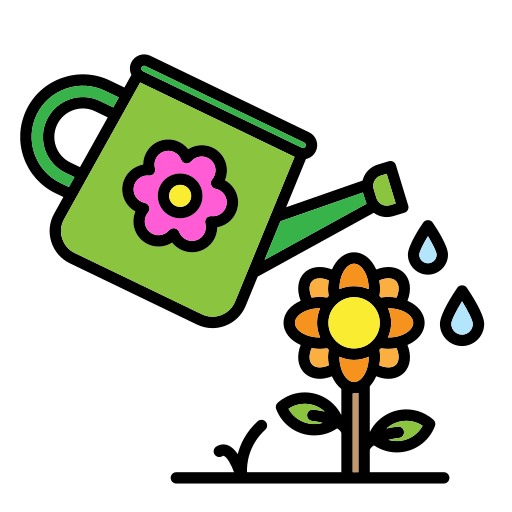
In addition, you should:
Have an interest in outdoor work
Have a desire to learn about sustainable plant growth
Be willing to engage in voluntary roles for practical experience
Develop physical strength and fitness to perform everyday tasks such as lifting fertilizer bags, using gardening tools, being in the sun for long hours, etc.
Quiz
You're considering becoming a professional gardener but want to take some courses first. Which course is the most important for you to take?
To be a gardener, you should have good knowledge of plant care and how to sustain plant growth. The other three courses cover the types of knowledge you'll need if you want to be a horticulturist.
Responsibilities of a Horticulturist
A horticulturist specializes in working with plants and applies knowledge from biology, botany, plant physiology, and environmental science to promote plant health and support their growth.
They manage the breeding, cultivation, selection, and production of plants.
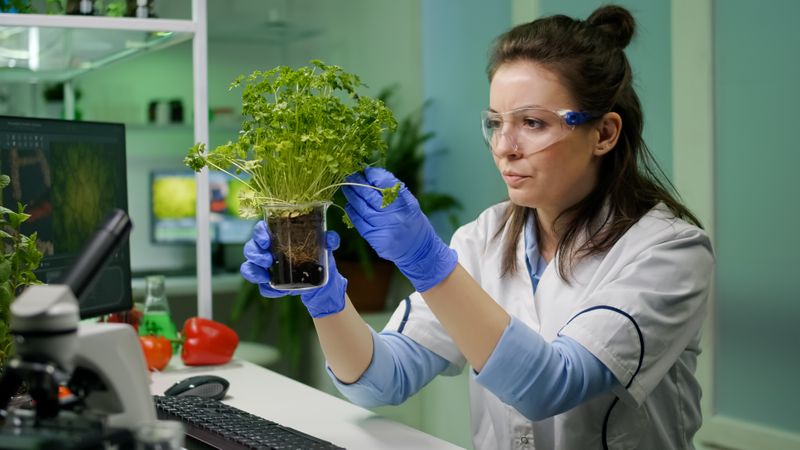 Image courtesy of DC Studio via Freepik
Image courtesy of DC Studio via Freepik
Responsibilities include:
Investigating and collecting information about flora, particularly agricultural plants 🔍
Choosing appropriate plant varieties for different habitats 🍏
Evaluating soil quality and nutrient levels 🌰
Growing and tending to plants and agricultural products 🌽
Providing guidance on eco-friendly fertilization and pest management techniques 🧑🔬
Revitalizing ecosystems, overseeing indigenous plant species, and enhancing biodiversity 🌳
Education & Skills Required to Become a Horticulturist
To become a horticulturist, you must have an associate or bachelor's degree in horticulture, biology, botany, soil science, or environmental science.

In addition, you should:
Network with professional horticulture organizations and associations
Gain practical experience through internships at commercial plant growers, landscaping companies, or plant nurseries
Develop critical thinking and effective communication skills to collaborate well with other scientists, researchers, and business professionals
Quiz
Which of these skills are more important to become a horticulturist? Select all that apply:
If you want to be a horticulturist, you should be able to research plant species and genetics and analyze data to develop new species or improve existing ones. You should also have strong communication skills to work well with others.
Did you know?
Certain states, provinces, or regions might have specific licensing or certification requirements for horticulturists, so it's important to verify the regulations in your area. The American Society for Horticultural Science (ASHS) provides the Associate Professional Horticulturist (APH) certification, which is designed for recent graduates and those starting their careers in horticulture.
Take Action
 Photo by Michaela St on Unsplash
Photo by Michaela St on UnsplashCheck out these resources to help you do some self-analysis, understand your career ambitions, and decide which role suits you more.
This Byte has been authored by
Romana Parveen
Learning Experience Designer
MBA